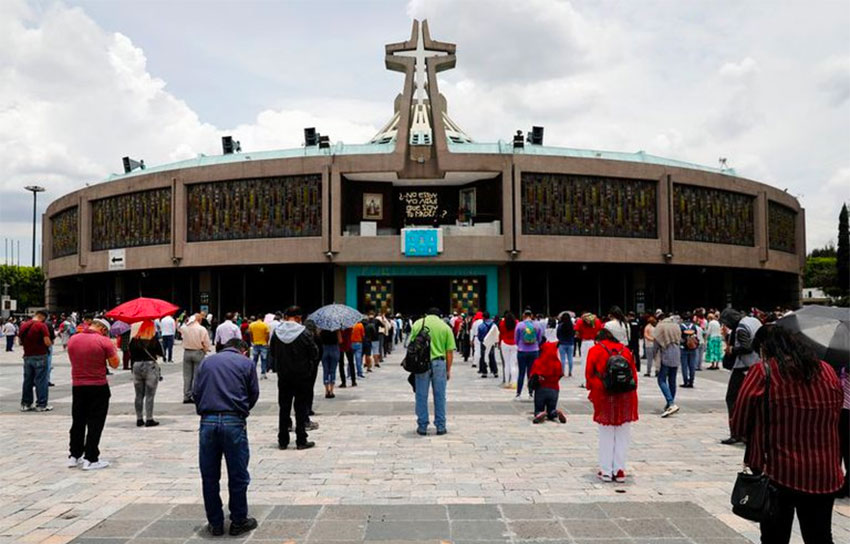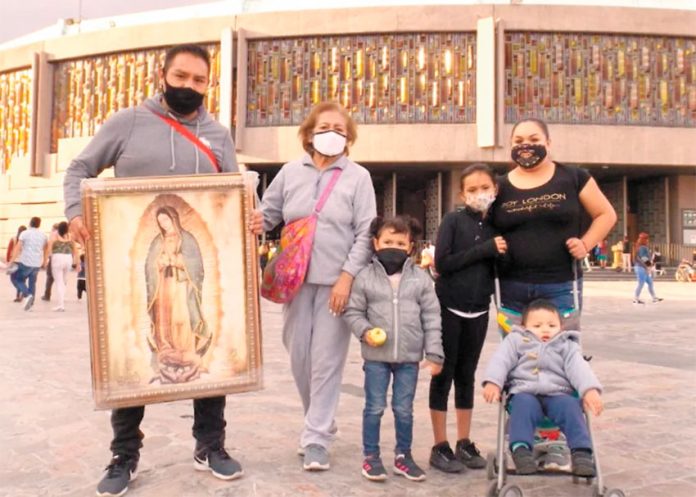For 20 years, Luis, a devout Catholic, has organized a pilgrimage to Mexico City’s Basilica of Guadalupe in December with his extended family to give thanks to the Virgin of Guadalupe for yet another year of life.
It’s a tradition that not even the coronavirus can stop.
“Faith matters more than fear of the virus,” he said as he and his wife, their young children and his mother left the basilica together, where the family had two images of the Virgin blessed.
Normally, the family would visit closer to the Virgin of Guadalupe feast day on December 12, making a pilgrimage to the church on foot. But the Covid-19 pandemic has forced changes upon them this year: to avoid crowds, they came by public transit and they came earlier than usual.
But they never once considered not coming at all, despite the cancellation of all religious activities at the basilica this year on December 11 and 12 to discourage crowds. Church officials have urged the faithful to stay home.

“This isn’t the usual way, but it was never an option not to come,” Luis said. “It’s a tradition. The pandemic doesn’t matter. We had to come celebrate [the virgin].”
The celebrations at the basilica are Mexico’s most popular religious celebration of the year, annually attracting between 8 and 10 million people to the basilica in the days leading up to December 12. About 20 million people in total visit throughout the year.
This year, church officials have encouraged the faithful to visit in November or January instead to avoid overcrowding. People are not allowed to linger once they have had their moment before the holy relic, a cloak said to have been divinely imprinted with the virgin’s image in 1531.
But Luis’s family, which carries on a tradition started by his grandmother, is an example of the difficult road devout Catholics in Mexico are navigating this year as they debate between avoiding Covid-19 and maintaining traditions that demonstrate faith at a time when they say they need divine intervention more than ever.
“There is no December without a celebration for the virgin,” says Luis’s mother Patricia. “I always get excited to see her and to ask her to protect us, now even more with all that is happening,”
Celebrating the virgin’s holy day is also an act of family togetherness. According to Luis’s wife Viridiana, the family begins its festivities at 12:01 a.m. on December 12, singing the Mañanitas (typically sung to religious figures on their feast day and at birthday parties) to the virgin at an altar they have decorated with flowers.
“We stay awake until midnight. We all sing together … and light the candles for the favors received during the year,” she said. “In the afternoon, we make a meal and spend time together.”
The family said they understand the risk in coming this year and emphasized that they obeyed all the safety rules enforced by the cadre of health officials stationed around the basilica’s perimeter.
“Of course we are afraid,” said Luis. “But it is exactly for that reason that we are here asking the virgencita to help us, to be with us.”
Source: El Universal (sp), Infobae (sp)
